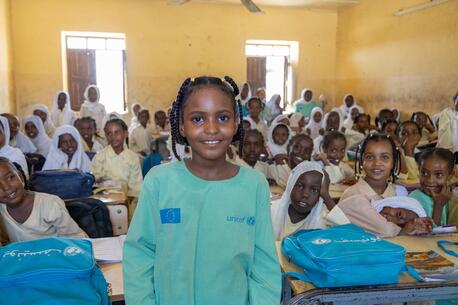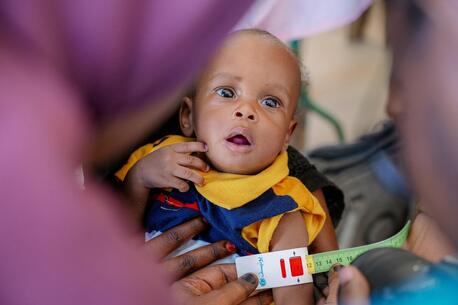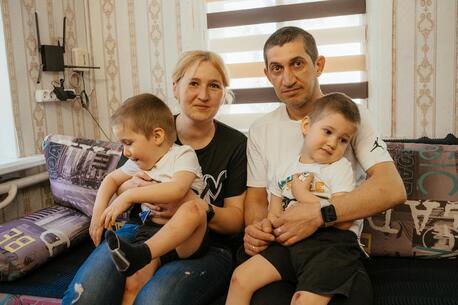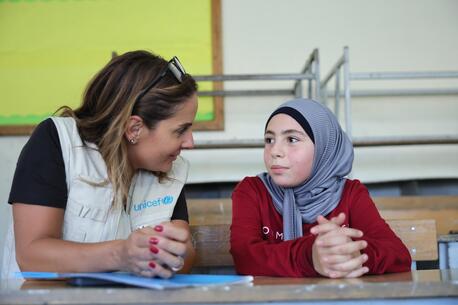
UNICEF Aids Children Uprooted by Conflict in Lebanon
UNICEF is working to provide emergency aid to children and families caught in intensifying violence between Israel and Hezbollah.
Children don't start wars, but they pay the highest price
Mass displacement continues in Lebanon, where an estimated 211,000 people, including around 74,000 children, have been forced out of their homes by Israeli air strikes in a rapidly escalating cross-border conflict, according to the International Organization for Migration.
UNHCR, the United Nations refugee agency, reported that thousands of Lebanese and Syrian people are fleeing Lebanon for Syria due to ongoing violence. Fifty children were killed in a span of just two days earlier this week, according to the Lebanese Ministry of Public Health.
The shelling was all around us; we saw fires from the explosions everywhere and the sound of air strikes echoed all around. — Zeinab, 14, Beirut
More than 78,000 internally displaced people are staying in nearly 550 emergency shelters in Lebanon, many of them in converted public schools.
"The shelling was all around us; we saw fires from the explosions everywhere and the sound of air strikes echoed all around," said 14-year-old Zeinab, who is staying with her family in a shelter set up in Bir Hasan Public School in Beirut. "Our hearts are heavy — we truly miss our village and country. "
Watch the video:
"This is a very dire situation," said Edouard Beigbeder, UNICEF Representative in Lebanon. "UNICEF is on the ground with government partners and civil society to assess the situation and at the same time responding."
UNICEF is distributing hygiene kits, mattresses, blankets and sleeping bags to shelters in Lebanon, along with thousands of bottles of clean drinking water, education and recreation supplies for children, personal hygiene items for women and girls, and nutrition supplies including supplements and baby food. UNICEF is also providing psychosocial support, including child protection services, education and recreational activities at many shelters.
UNICEF continues to be concerned about the conflict's mental health impacts on children in both Israel and Lebanon. Learn more about where UNICEF works here.
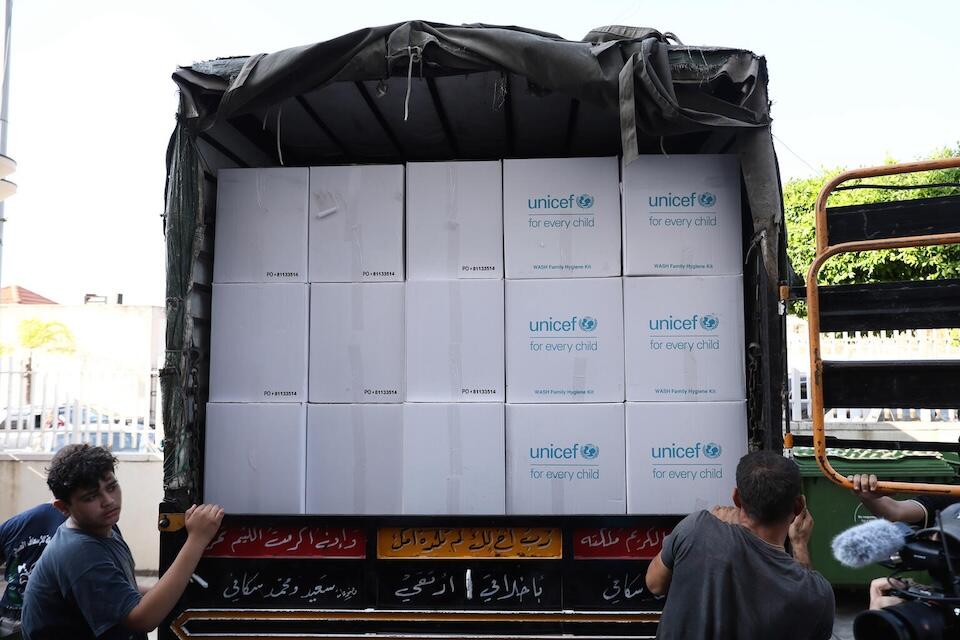
Protecting civilian lives must be the priority
“This bloodshed is extracting a terrible toll, driving tens of thousands from their homes,” Filippo Grandi, UN High Commissioner for Refugees said on Sept. 25.
“It is yet another ordeal for families who previously fled war in Syria only now to be bombed in the country where they sought shelter," Grandi continued. "We must avoid replaying these scenes of despair and devastation. The Middle East cannot afford a new displacement crisis. Let us not create one by forcing more people to abandon their homes. Protecting civilian lives must be the priority.”
Every child has the right to a safe and healthy childhood. Support UNICEF today.
HOW TO HELP
There are many ways to make a difference
War, famine, poverty, natural disasters — threats to the world's children keep coming. But UNICEF won't stop working to keep children healthy and safe.
UNICEF works in over 190 countries and territories — more places than any other children's organization. UNICEF has the world's largest humanitarian warehouse and, when disaster strikes, can get supplies almost anywhere within 72 hours. Constantly innovating, always advocating for a better world for children, UNICEF works to ensure that every child can grow up healthy, educated, protected and respected.
Would you like to help give all children the opportunity to reach their full potential? There are many ways to get involved.



